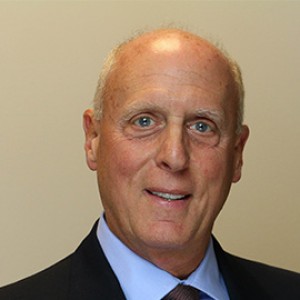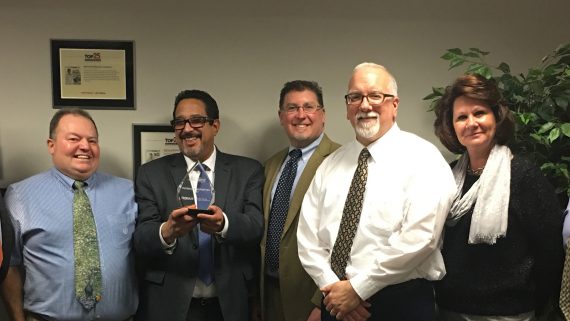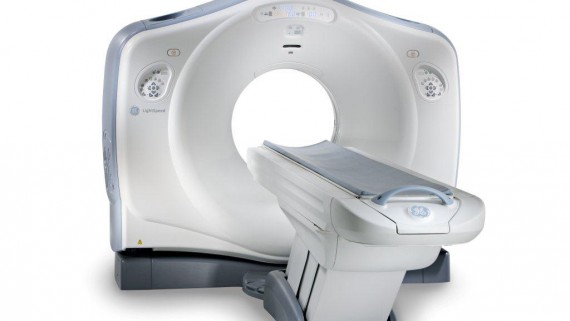 In May of this year, The American College of Radiology (ACR) Council elected Alan D. Kaye, MD, FACR, as its new president. Dr. Kaye is a managing member of Advanced Radiology Consultants, LLC of Connecticut, former chairman of radiology at Bridgeport Hospital for 22 years, and on the medical staffs of Bridgeport, Yale New Haven and St. Vincent’s Hospitals. He is currently a member of the ACR Budget and Finance Committee, Radiology Integrated Care Network and numerous ACR commissions, including Government Relations, Economics, and Informatics. As ACR president, he will be a member of the College’s Board of Chancellors and Executive and Budget and Finance committees. Kaye previously served as a speaker of the ACR Council and member of the Council Steering Committee and many other ACR commissions and committees. Dr. Kaye received his medical degree from the University of Connecticut, and has interests in administrative radiology and health policy. He currently serves as president of the Radiological Society of Connecticut. Advanced Radiology interviewed Dr. Kaye shortly after he was installed as ACR president, to discuss his goals for the coming year and thoughts on the near
In May of this year, The American College of Radiology (ACR) Council elected Alan D. Kaye, MD, FACR, as its new president. Dr. Kaye is a managing member of Advanced Radiology Consultants, LLC of Connecticut, former chairman of radiology at Bridgeport Hospital for 22 years, and on the medical staffs of Bridgeport, Yale New Haven and St. Vincent’s Hospitals. He is currently a member of the ACR Budget and Finance Committee, Radiology Integrated Care Network and numerous ACR commissions, including Government Relations, Economics, and Informatics. As ACR president, he will be a member of the College’s Board of Chancellors and Executive and Budget and Finance committees. Kaye previously served as a speaker of the ACR Council and member of the Council Steering Committee and many other ACR commissions and committees. Dr. Kaye received his medical degree from the University of Connecticut, and has interests in administrative radiology and health policy. He currently serves as president of the Radiological Society of Connecticut. Advanced Radiology interviewed Dr. Kaye shortly after he was installed as ACR president, to discuss his goals for the coming year and thoughts on the near
 Alan D. Kaye, MD, FACR Advanced Radiology
Alan D. Kaye, MD, FACR Advanced Radiology
- ACR President — Alan D. Kaye, MD, FACR, Bridgeport, Conn., Advanced Radiology Consultants and Yale New Haven Children’s Hospital, Bridgeport Campus
- ACR Vice President — Lawrence A. Liebscher, MD, FACR, Waterloo, Iowa, Cedar Valley Medical Specialists
- ACR Council Speaker — Timothy L. Swan, MD, FACR, Marshfield, Wis., department of radiology
Dr. Pamela Reeser, one of Advanced Radiology’s Directors of Breast Imaging, explains 3D Breast Tomosynthesis and its benefits in this interview with WICC Radio from April 7, 2017.
Advanced Radiology team members, left to right: Clark Yoder, CEO; Dennis Condon, COO; Mario Herrera, Physician Liaison; Ted Fitzgerald, Physician Liaison; Bob Evangelista, Marketing Manager; Deborah Okamura, Customer Care/Call Center Manager; and Gerard Muro, M.D., Neuroradiologist.
Shelton, Conn. (March 15, 2017) – Advanced Radiology Consultants, a leading provider of medical imaging in Connecticut, has been chosen by members of the Radiology Business Management Association (RBMA) as the recipient of its 2017 RBMA Quest Award for Physician Marketing. The RBMA Quest Awards is a program recognizing those practices that have excelled in their marketing programs. The firm’s clinical decision support guide for MRI and CT was created to help doctors and administrators select appropriate imaging studies and ensure the correct ICD-10 codes are associated with each. Focused on the most commonly requested exams, the guides strike a balance between informational tool and promotional piece. Advanced Radiology received an overwhelmingly positive response to the guides, with more than 750 copies requested within the first 12 weeks. “By providing this information to our referring doctors and their staff, we help make them more efficient and cost effective, providing them with an improved experience. That, in turn, i
Beginning January 1, 2017, legislation took effect in Connecticut that requires insurance companies to cover a more advanced form of mammography – 3D breast tomosynthesis. The state now requires insurers to cover the 3D exam upon the patient’s request. Under existing law, policies must cover baseline mammograms for women ages 35 to 39, and annual mammograms for women 40 and older. You should contact your insurance provider for specific information about coverage through your plan. Improved Image Quality The 3D systems in our offices were developed by Hologic (a company with offices in nearby Danbury) With a 3D mammogram the digital camera moves in an arc over the breast to acquire images at multiple angles. The individual images are then reconstructed into a series of thin, high-resolution slices, typically 1mm thick. The set of tomosynthesis images provides a means of viewing the breast tissue in addition to conventional 2D mammography. 3D tomosynthesis allows the separation of overlapping breast tissue structures in the breast, which leads to better visualization through normal breast tissue and the potential for improved detection of abnormalities. The addition of 3D images to conventional 2D images also provides improved clarity for both fatty and dense breas
As Breast Cancer Awareness Month 2016 draws to a close, Advanced Radiology would like to remind everyone, specifically women age 40 and above, who did not have their mammogram this past month of the importance of screening mammography. Approximately 1 in 8 women will develop breast cancer and 8 out of 9 of those diagnosed have no family history of breast cancer. In addition, early detection continues to provide a five-year survival rate of almost 100%. Significant research has been done and continues to be done on the demographics, benefits, costs, and value of periodic screening. As screening technology has improved, we have witnessed a corresponding drop in the need for additional diagnostic mammography as well. Ongoing research, combined with advances in imaging technology, almost certainly mean that the role of screening mammography in women’s overall health will evolve over the next generation. A recent news release from the American College of Radiology (ACR), ACR and SBI Continue to Recommend Regular Mammography Starting at Age 40, outlines the organization’s reasons for continuing its recommendation that all women age 40 and above should receive an annual screening mammogram, t
Screening Mammography
Advanced Radiology is proud to begin offering screening mammograms in our Shelton office – WALK IN APPOINTMENTS are always welcome!
Press Releases and Announcements
See what’s new and different at Advanced Radiology, including improvements, announcements and accomplishments.
Congratulations to our 2016 distinguished doctors as recognized by Castle Connolly- Top Doctors in Connecticut Steven Cohen, M.D. Denise Pittaro, M.D. Mark Rosovsky, M.D.
So you know what a mammogram is, right? And you understand its value in finding breast cancer at an earlier, more treatable stage. But a CT scan as a mammogram for the heart or lungs? Just what does the analogy mean?
“It’s an analogy that makes it easier to understand what low-dose CT scans can do as a screening tool for people at risk for lung cancer or coronary artery disease,” said body imaging radiologist Alan D. Kaye, M.D., Chief Executive Officer of Advanced Radiology, Southern Connecticut’s oldest independent radiology practice. Advanced Radiology has served the region’s diagnostic needs for 110 years.


